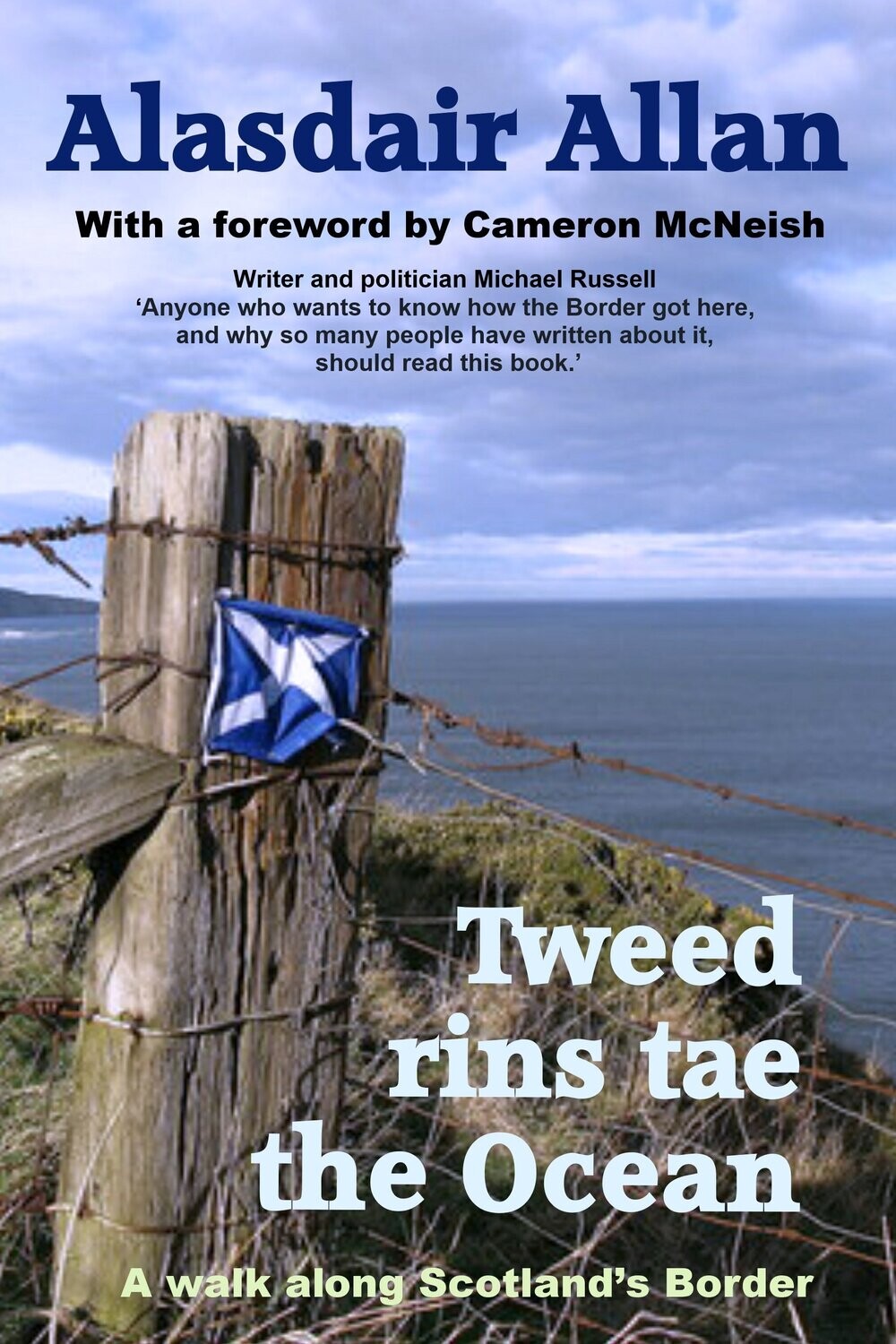Tweed rins tae the Ocean
Alasdair Allan is the Member of the Scottish Parliament for Na h-Eileanan an Iar (the Western Isles), and lives in the Isle of Lewis. Tweed rins tae the Ocean, however, is about the place he comes from originally - the Scottish Borders.
The book follows an east to west coast walk by Allan and some friends, and gently explores the history, literature and language of what Allan contends is the oldest national land border in the world. The title of the book takes its inspiration from the Burns song, 'Such a Parcel of Rogues in a Nation'. The journey described was the product of a challenge Allan set himself, not just to walk the Border, but to read a way along it too.
This is a book that will challenge the preconceptions of many about a region reputed to have the highest per capita number of titled residents in Scotland, and which is home to the Duke of Buccleuch, one of the largest private landowner in Europe.
Cameron McNeish, author, broadcaster and mountain walker, who has written the foreword for Tweed rins to the Ocean says: 'There is nowhere else in Scotland I sense an “uncanny watchfulness” as intensely as I do in the Borders. It lurks on every hill-top, in every cleuch, and in every castle ruin, and Alasdair Allan has, almost magically, captured this essence of the Border.'
Seonaid Francis, Editorial Director of ThunderPoint, says: 'This absorbing book is a well-researched exploration of the Border through history and literature; it is a warmly-written and entertaining book, bursting with humour and a deep-rooted love of the Border regions from which Alasdair hails.'
Alasdair Allan says: ‘It should be no surprise that a book by a politician about a political boundary offers occasionally opinionated views. However, I hope that the account of my journey from Berwick to the Solway Firth will be appreciated by anyone who likes dry humour and wet weather.
‘The Border line has always been fascinating to me, not least as so many of my own family grew up a matter of yards from it. The book tries to explain why writers (and reivers) down the centuries have been similarly fascinated. It is also, I admit, partly a retort to some others who have concluded that the Border – and by implication Scotland – are not really there at all. I hope the book will appeal to hillwalkers, and anyone else who is curious about how this line on the map came to be where it is today.’
Any royalties due to Alasdair Allan from the sale of the book will be divided equally between the Western Isles Cancer Care Initiative, and the Mamie Martin Fund, a children’s charity in Malawi.

